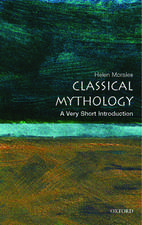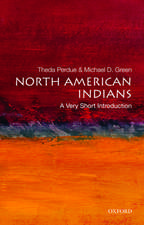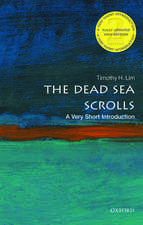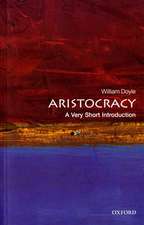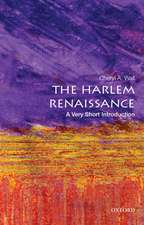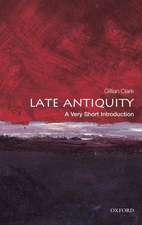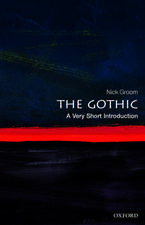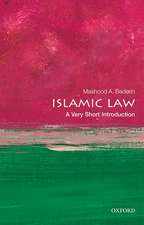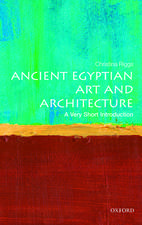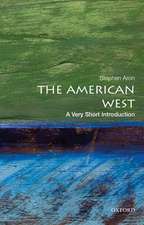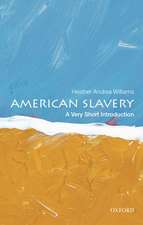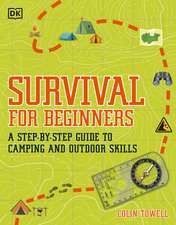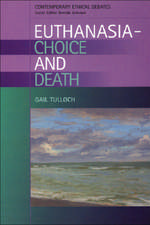Superstition: A Very Short Introduction: Very Short Introductions
Autor Stuart Vyseen Limba Engleză Paperback – 23 ian 2020
Din seria Very Short Introductions
-
 Preț: 56.93 lei
Preț: 56.93 lei -
 Preț: 47.19 lei
Preț: 47.19 lei -
 Preț: 56.45 lei
Preț: 56.45 lei - 5%
 Preț: 56.93 lei
Preț: 56.93 lei -
 Preț: 47.20 lei
Preț: 47.20 lei -
 Preț: 46.72 lei
Preț: 46.72 lei -
 Preț: 46.09 lei
Preț: 46.09 lei -
 Preț: 40.95 lei
Preț: 40.95 lei -
 Preț: 46.28 lei
Preț: 46.28 lei - 17%
 Preț: 46.81 lei
Preț: 46.81 lei - 17%
 Preț: 46.57 lei
Preț: 46.57 lei - 17%
 Preț: 46.65 lei
Preț: 46.65 lei - 17%
 Preț: 46.91 lei
Preț: 46.91 lei - 17%
 Preț: 47.19 lei
Preț: 47.19 lei - 17%
 Preț: 46.73 lei
Preț: 46.73 lei - 17%
 Preț: 47.26 lei
Preț: 47.26 lei - 17%
 Preț: 46.84 lei
Preț: 46.84 lei - 17%
 Preț: 47.22 lei
Preț: 47.22 lei - 17%
 Preț: 46.60 lei
Preț: 46.60 lei - 17%
 Preț: 47.36 lei
Preț: 47.36 lei - 17%
 Preț: 47.01 lei
Preț: 47.01 lei - 17%
 Preț: 46.84 lei
Preț: 46.84 lei - 18%
 Preț: 45.84 lei
Preț: 45.84 lei - 17%
 Preț: 46.91 lei
Preț: 46.91 lei - 18%
 Preț: 46.28 lei
Preț: 46.28 lei - 17%
 Preț: 46.73 lei
Preț: 46.73 lei - 30%
 Preț: 39.72 lei
Preț: 39.72 lei - 17%
 Preț: 46.73 lei
Preț: 46.73 lei -
 Preț: 66.65 lei
Preț: 66.65 lei - 17%
 Preț: 46.73 lei
Preț: 46.73 lei - 17%
 Preț: 47.01 lei
Preț: 47.01 lei - 17%
 Preț: 46.73 lei
Preț: 46.73 lei - 17%
 Preț: 46.91 lei
Preț: 46.91 lei - 17%
 Preț: 46.79 lei
Preț: 46.79 lei - 18%
 Preț: 46.22 lei
Preț: 46.22 lei - 17%
 Preț: 46.73 lei
Preț: 46.73 lei - 17%
 Preț: 46.73 lei
Preț: 46.73 lei - 17%
 Preț: 47.10 lei
Preț: 47.10 lei - 18%
 Preț: 46.38 lei
Preț: 46.38 lei - 18%
 Preț: 46.10 lei
Preț: 46.10 lei - 17%
 Preț: 47.19 lei
Preț: 47.19 lei - 18%
 Preț: 46.10 lei
Preț: 46.10 lei - 17%
 Preț: 47.26 lei
Preț: 47.26 lei - 17%
 Preț: 46.56 lei
Preț: 46.56 lei - 17%
 Preț: 46.91 lei
Preț: 46.91 lei - 17%
 Preț: 47.26 lei
Preț: 47.26 lei - 17%
 Preț: 47.01 lei
Preț: 47.01 lei - 17%
 Preț: 47.19 lei
Preț: 47.19 lei - 16%
 Preț: 47.53 lei
Preț: 47.53 lei - 17%
 Preț: 47.36 lei
Preț: 47.36 lei
Preț: 46.28 lei
Preț vechi: 56.19 lei
-18% Nou
Puncte Express: 69
Preț estimativ în valută:
8.86€ • 9.23$ • 7.35£
8.86€ • 9.23$ • 7.35£
Carte disponibilă
Livrare economică 13-18 ianuarie
Livrare express 09-15 ianuarie pentru 24.56 lei
Preluare comenzi: 021 569.72.76
Specificații
ISBN-13: 9780198819257
ISBN-10: 0198819250
Pagini: 176
Ilustrații: 8-10 black and white images
Dimensiuni: 110 x 169 x 10 mm
Greutate: 0.11 kg
Editura: OUP OXFORD
Colecția OUP Oxford
Seria Very Short Introductions
Locul publicării:Oxford, United Kingdom
ISBN-10: 0198819250
Pagini: 176
Ilustrații: 8-10 black and white images
Dimensiuni: 110 x 169 x 10 mm
Greutate: 0.11 kg
Editura: OUP OXFORD
Colecția OUP Oxford
Seria Very Short Introductions
Locul publicării:Oxford, United Kingdom
Recenzii
Stimulating and informative.
This succinct summary of the history of and psychology behind superstition is so superb that I am adopting it for my college course on critical thinking and recommend it be required reading for all social science students. Stuart Vyse is such a marvelous writer and clear thinker, in fact, that this book should be required reading for all humans susceptible to superstitions, which is to say all of humanity.
Stuart Vyse has packed a lot into this little book, including a comprehensive discussion of the way in which the concept of superstition has changed across the ages, the psychology of superstition, and the implications of superstitious thinking for the modern world - all presented in an engaging and informative style. Highly recommended!
This succinct summary of the history of and psychology behind superstition is so superb that I am adopting it for my college course on critical thinking and recommend it be required reading for all social science students. Stuart Vyse is such a marvelous writer and clear thinker, in fact, that this book should be required reading for all humans susceptible to superstitions, which is to say all of humanity.
Stuart Vyse has packed a lot into this little book, including a comprehensive discussion of the way in which the concept of superstition has changed across the ages, the psychology of superstition, and the implications of superstitious thinking for the modern world - all presented in an engaging and informative style. Highly recommended!
Notă biografică
Stuart Vyse is a behavioral scientist, teacher, and writer. He holds PhD and MA degrees in psychology and BA and MA degrees in English Literature. He taught at Providence College, the University of Rhode Island, and Connecticut College, where he was Joanne Toor Cummings '50 Professor. Vyse has written two books: Believing in Magic: The Psychology of Superstition (OUP, 1997), which won the 1999 William James Book Award of the American Psychological Association, and Going Broke: Why Americans Can't Hold on to Their Money, an analysis of the current epidemic of personal debt, the second edition of which (Going Broke: Why Americans (Still) Can't Hold on to Their Money) is due to publish in 2018. He has written dozens of personal essays, most of which have appeared as op-eds in various newspapers and online publications, and he is a Fellow of the Committee for Skeptical Inquiry.



